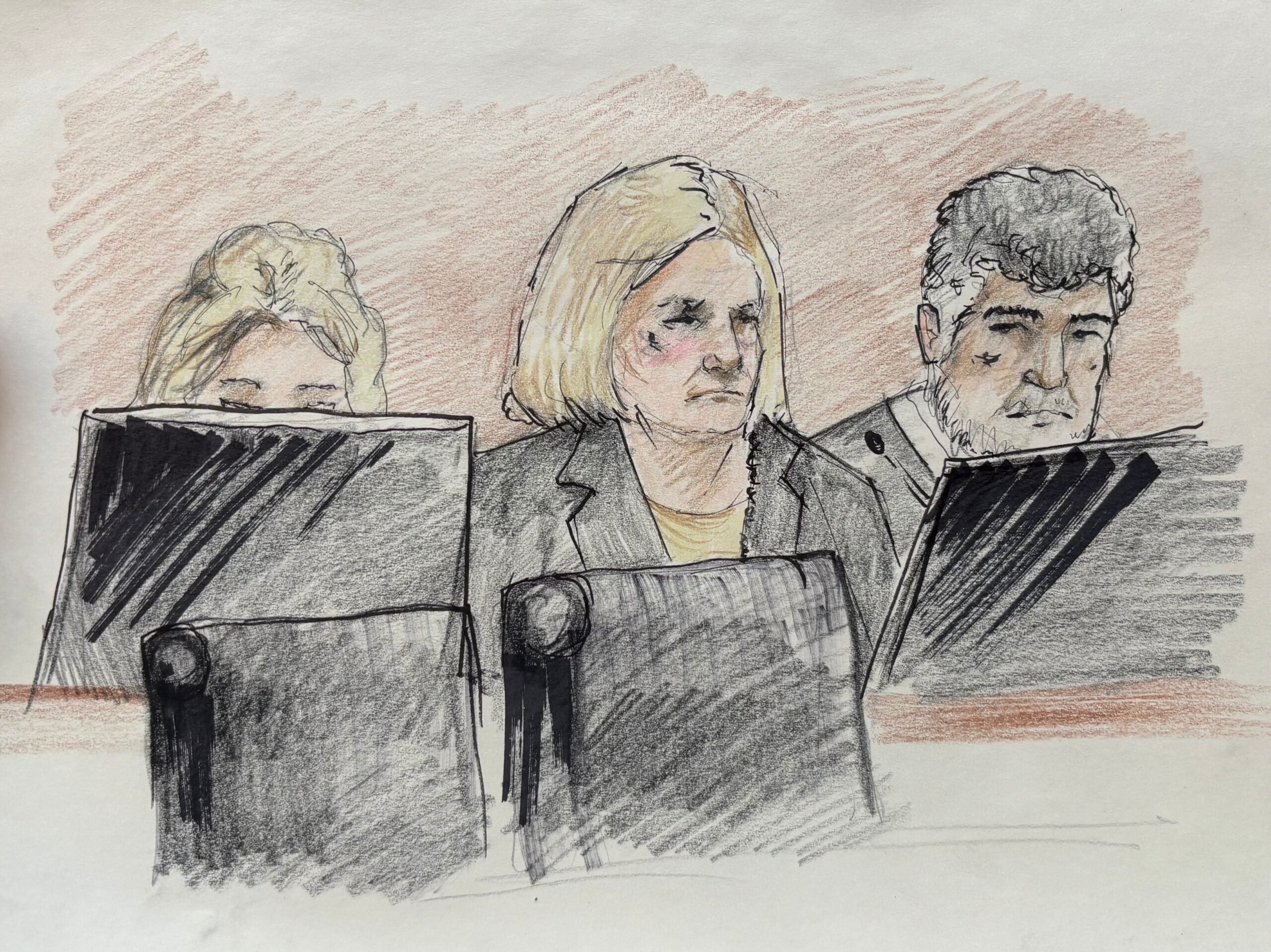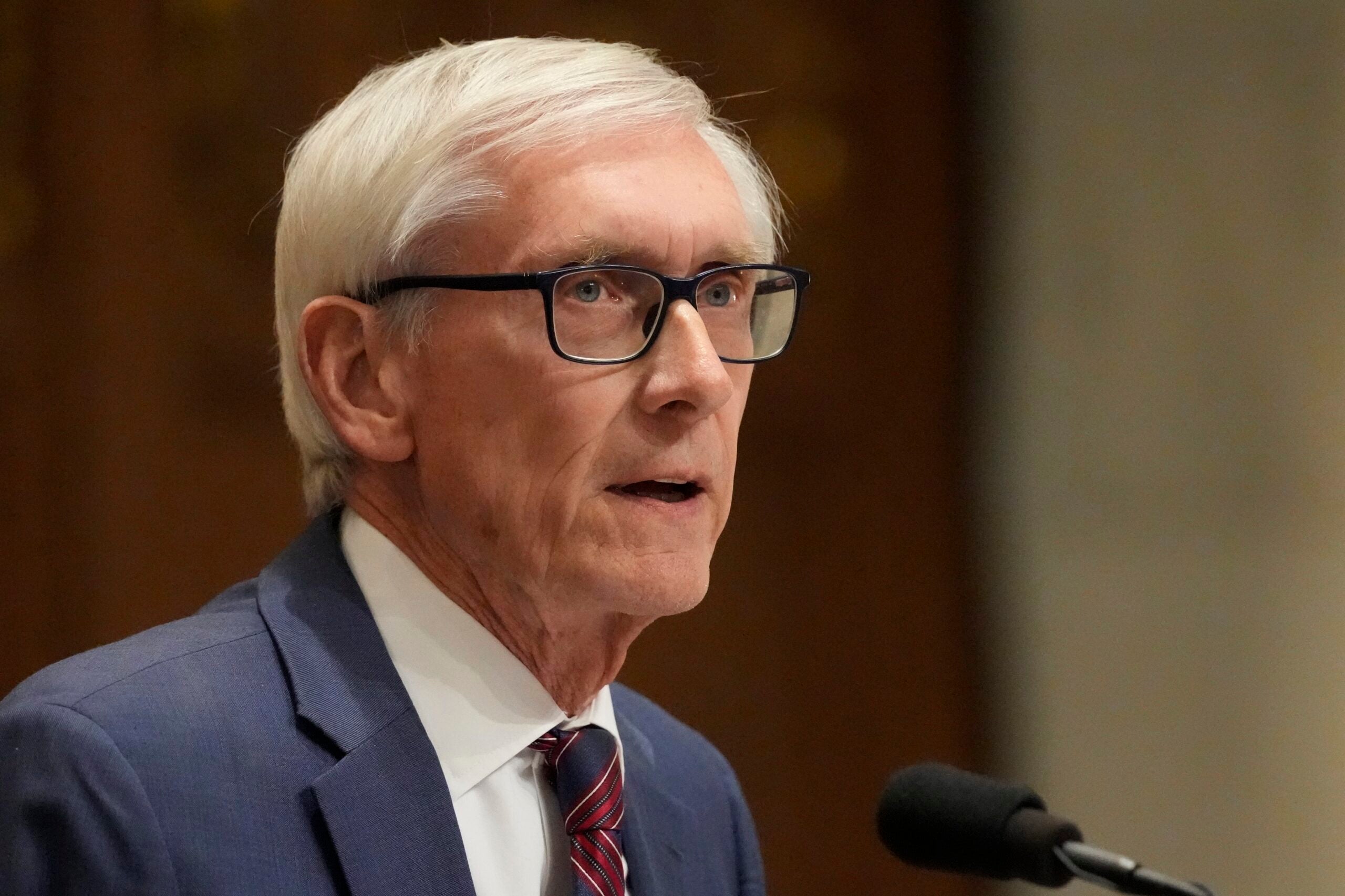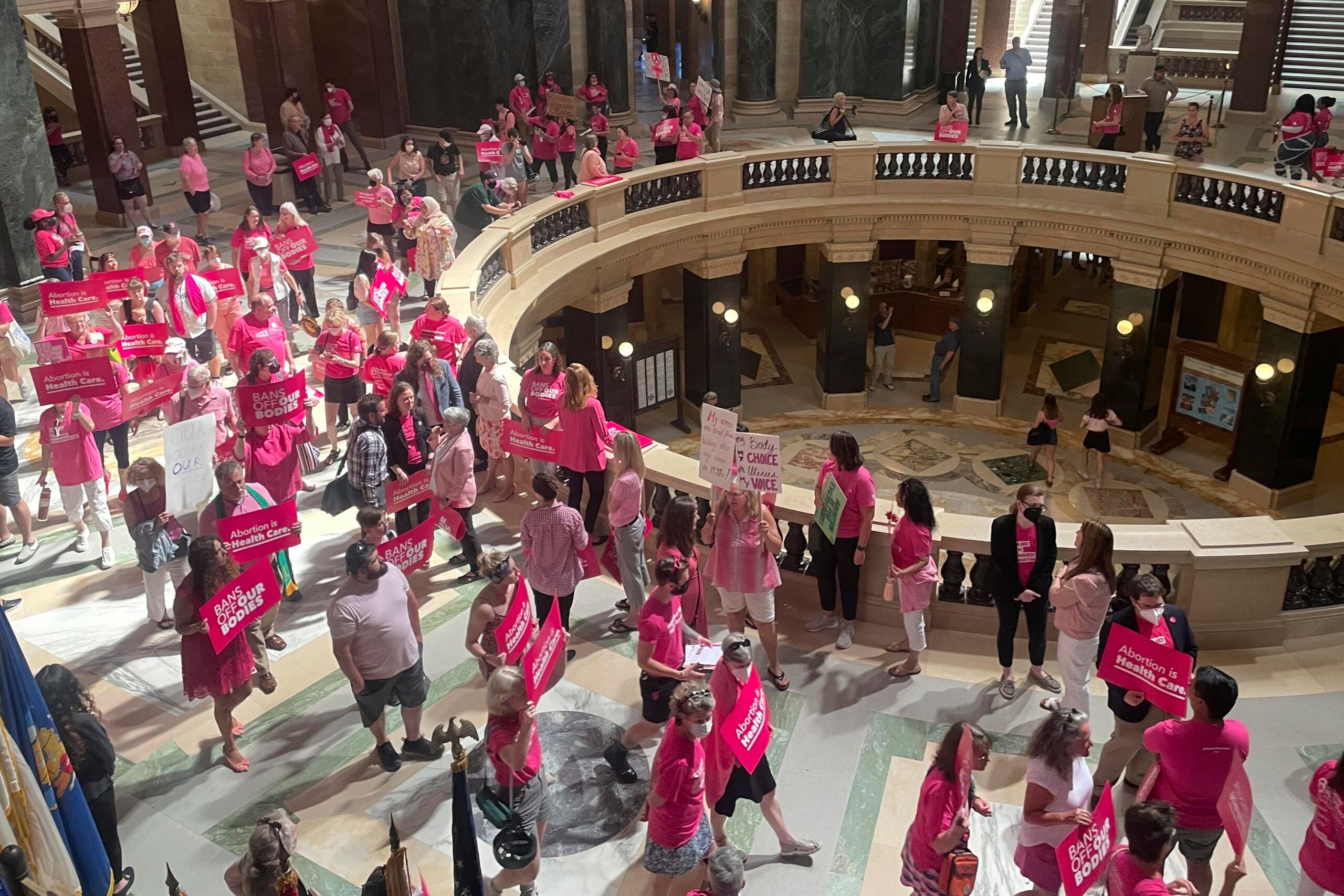Wisconsin presented a tale of two elections Tuesday — one that captured a liberal majority on the state Supreme Court for the first time in 15 years, and another that seemingly threatened to take that victory back.
In the court race, voters sent Milwaukee County Judge Janet Protasiewicz to the Wisconsin Supreme Court. In the other race, a special election, voters chose state Rep. Dan Knodl, a Republican from Germantown, to fill a vacant seat in 8th state Senate district.
Knodl’s win was significant for another reason: It gave Republicans a two-thirds majority in the Senate, a margin that would let them remove officials from office after they’re impeached. And weeks before the election, Knodl said he’d consider using that power to impeach Protasiewicz.
News with a little more humanity
WPR’s “Wisconsin Today” newsletter keeps you connected to the state you love without feeling overwhelmed. No paywall. No agenda. No corporate filter.
On Wednesday, Knodl backed away from his comments, and Senate Majority Leader Devin LeMahieu, a Republican from Oostburg, told reporters he wouldn’t pursue it.
But it’s a tool Republicans could use in state government if they chose to, for as long as they maintain their current numbers in the Senate.
Here’s some background on the process and what that could mean.
How does impeachment work in state government?
The process is laid out in the state Constitution and is also summarized in a recent memo written by Wisconsin’s nonpartisan Legislative Reference Bureau, or LRB, at the request of Senate Minority Leader Melissa Agard, a Democrat from Madison.
Impeachment takes a majority vote in the state Assembly, or 50 of the chamber’s 99 representatives. Republicans currently hold 64 seats in the Assembly and will still hold 63 seats after Knodl departs for the Senate.
Only the Senate has the power to convict and remove someone from office once they’re impeached, a process that requires a two-thirds vote of the senators present. When all 33 Senators are present, the two-thirds threshold is 22, which is often referred to as a supermajority.
How did Wisconsin Republicans gain impeachment power?
Senate Republicans were headed for a 22-seat majority after last year’s election, but longtime Sen. Alberta Darling, R-River Hills, announced her retirement in late November.
That left Senate Republicans with 21 seats. Knodl’s victory Tuesday over Democrat Jodi Habush Sinykin will bring them back to 22.
A spokesperson for LeMahieu said there’s no firm date yet for when Knodl will be sworn in, but it could happen in early May.
Has the Legislature ever impeached anyone?
Yes, but it’s been a while — 170 years to be exact.
On March 3, 1853, the Assembly adopted a resolution to impeach Circuit Judge Levi Hubbell for “corruption and malfeasance in office.” But the Senate took repeated votes to acquit Hubbel.
So while Hubbel retains the distinction of being the only person ever impeached by the Wisconsin Assembly, no one has ever been convicted and removed from office by the Wisconsin Senate in the state’s history.
Who can be impeached?
The Wisconsin Constitution says “civil officers of this state” can be impeached “for corrupt conduct in office, or for crimes and misdemeanors.” According to the LRB’s memo, “civil officers” include the governor, lieutenant governor and judges as well as “similar situated elected officials” like the attorney general, state treasurer, secretary of state and superintendent of public instruction.
Can the Legislature impeach state Supreme Court justices?
According to the Legislative Reference Bureau, the answer is yes.
Wisconsin Public Radio asked LRB Director Rick Champagne variations of that question in an email. Champagne responded that justices are impeachable because the Wisconsin Constitution makes reference to impeaching a “judicial officer.”
“‘Judicial officer’ under Article VII, Section 1, would include a supreme court justice,” Champagne said. “Both justices and judges may be impeached.”
The Wisconsin Supreme Court made passing mention of impeachment in a 2011 opinion when the majority wrote that a justice may be removed from office through impeachment, among other methods. That 4-3 ruling was supported by Justices David Prosser, Patience Roggensack, Annette Ziegler and Michael Gableman, all conservatives.
Wisconsin’s statutes also reference impeachment, though not in a straightforward way when it comes to justices. The law says a civil officer “may be removed from office by impeachment” and that “any supreme court justice … may also be removed by office by address of both houses of the Legislature.”
That word — “address” — refers to another process altogether.
Can the Legislature remove justices by other means?
A different section of the Wisconsin Constitution spells out the process for removing justices by “address.”
“Any justice or judge may be removed from office by address of both houses of the legislature,” the Constitution states, “if two-thirds of all the members elected to each house concur therein.”
In other words, removing a justice by “address” would require a two-thirds vote in both the Senate and Assembly. Republicans have reached that threshold in one house but not in the other.
What would happen if the Legislature did impeach and remove a Supreme Court justice?
Under state law, when there’s a vacancy on the Supreme Court, the governor appoints their replacement. So if the Republican Legislature were to remove a Supreme Court justice, the next justice would be picked by Democratic Gov. Tony Evers.
Are Republican lawmakers planning to use their impeachment power right now?
In short, no. But they’re the ones who started talking about impeachment in the first place.
On Nov. 10, 2022 — after Senate Republicans initially won their two-thirds majority but before Sen. Darling retired —Assembly Speaker Robin Vos, R-Rochester, told WISN-AM radio that impeachment was a new power for Republicans after the election.
“I mean, the state Senate does have the ability now — with the two-thirds majority — they can take out people who aren’t doing their jobs,” Vos said. “They have the ability to impeach officials if they are not following the Constitution and the law.”
In an interview that aired on WISN-TV March 26, Knodl said he’d consider impeaching prosecutors and circuit court judges in Milwaukee.
“Janet Protasiewicz is a circuit court judge right now in Milwaukee, and she’s failed,” Knodl said at the time.
“You would support impeaching her?” asked WISN-TV host Matt Smith.
“I certainly would consider it,” Knodl said.
Knodl has backed away from his earlier remarks after he and Protasiewicz both won Tuesday.
On Wednesday, Knodl said he had been talking earlier about potentially impeaching Protasiewicz as a county judge, not as a justice. He said he saw no reason to do that now that she was leaving Milwaukee County and did not see a reason to impeach any other member of the state Supreme Court.
A spokesperson for Vos did not respond to a request for comment Thursday.
LeMahieu downplayed the prospect of impeachment in a Wednesday interview with WISN-TV, where he suggested Knodl’s remarks had been blown out of proportion.
“He was asked about it on one station, so he answered off the cuff,” LeMahieu said. “To impeach someone, they would need to do something very serious. So no, we are not looking to start the impeachment process as a regular occurring event in Wisconsin.”
In an interview with WPR, Agard said she welcomed LeMahieu’s remarks, saying it gave her comfort to hear him say he did not plan to use impeachment.
“But there are people in this building that oftentimes take action without the blessing of their leadership,” Agard said. “And when you have someone who ran for office very recently, talking about this possibility in the building, you have to take them seriously as well.”
Wisconsin Public Radio, © Copyright 2025, Board of Regents of the University of Wisconsin System and Wisconsin Educational Communications Board.







